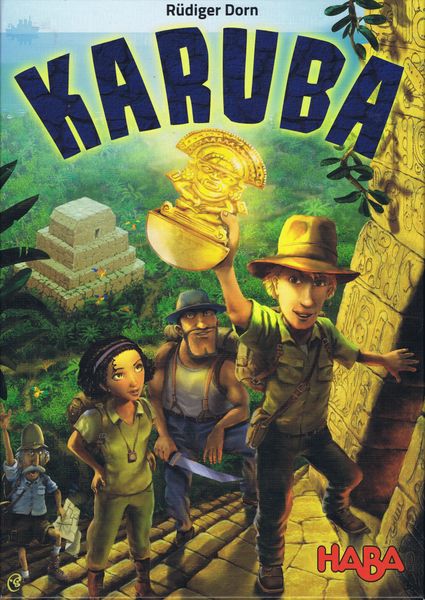Karuba (2015) Board Game
Karuba is a tile-laying board game designed by Rüdiger Dorn and released in in 2015. It is a game of exploration and puzzle-solving where players race to reach hidden temples deep in the jungle. The game has received critical acclaim for its simple yet engaging gameplay mechanics.
Game Components of Karuba
How To Setup Karuba
To set up Karuba, each player lays out their board with four explorers on the beach and four temples in the jungle, ensuring that each explorer and its corresponding temple are at least three spaces apart. All but one player arrange their tiles face-up around their board in numerical order. The remaining player mixes their tiles face-down and acts as the “caller” for the game. This setup ensures all players have an identical starting position.
Gameplay Mechanics and Game Objective
Player Experience
Playing Karuba is a relatively solitary experience, as players focus on their own boards with minimal interaction with opponents. The game is characterized by its quick setup and playtime, making it an excellent family option. The simultaneous tile placement mechanic keeps the game moving at a good pace, and the random drawing of tiles ensures each game is unique and fresh. Despite its lightweight nature, Karuba offers enough puzzle-solving to entertain seasoned gamers while remaining accessible to new players.
Pros
Cons
Personal Thoughts on Karuba
Karuba is an excellent choice for families and new board game enthusiasts due to its simplicity and quick playtime. It is also appealing to seasoned gamers who enjoy route-building and optimization challenges. The game’s ability to balance complexity with accessibility makes it a great addition to any gaming collection. While it may not be as complex as some other titles, Karuba’s engaging gameplay and satisfying experience ensure it will be pulled off the shelf frequently.
We are supported by our audience. When you purchase through links on our site, we may earn an affiliate commission, at no extra cost for you. Learn more.

